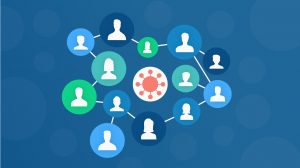How COVID19 is Shifting Digital Health Applications
Digitizing Health – The Future is Now
Medisafe is launching a new blog series focusing on the role of digital health and its pivot point leading to greater adoption and future applications to enhance patients’ lives. This is the first piece in the series.

The COVID19 outbreak has shifted all aspects of our lives, from how we live and work, to maintaining relationships and caring for others, to even how we manage our health. Yet, from challenges come new opportunities to implement solutions that allow patients to stay connected to their health, albeit in a new format. To better understand the impact, Medisafe conducted a survey of 1,000 patients in mid-summer to examine how the pandemic has changed health management behaviors on individuals’ health. Below are the major insights gleaned from respondents, providing a closer view into how patients are shifting their actions to keep their health in-check.
Employment drives medical awareness
As COVID-19 continued to spread throughout the US, respondents who were employed began to take a more active role in managing their health and wellness. Many employers provide advanced directives to their employees to take additional precautions, often leading to more users becoming more active in managing their own health. Additionally, as more employees return to the workplace, the risk of contracting the COVID19 increases, leading many employees to become more proactive in monitoring their health. On average, 60% of those in the workforce have taken an increased role in managing their health since the start of the pandemic.
Single and Struggling
According to survey findings, those who are single are taking a more active role in managing their health since the start of the pandemic. 54% of singles and 59% of widows and widowers, respectively, said they have changed how they’re managing their health, potentially employing new mobile health apps, since the start of the pandemic. Without another caretaker in the home, those who live alone are more likely to seek additional ways to monitor their health and manage conditions and medications, especially when accessibility to regular medical appointments and care resources are strained.
Race and Region
While the COVID19 has impacted all parts of the US, survey results showed the response to the virus is varied. Respondents who are Hispanic, African American, and Asian reported making the biggest changes to managing their health following the spread of the COVID19. While all races and ethnicities reported making some type of change to their health, those in the Hispanic community reported an 80% increase in managing their health.
Additionally, regions of the country also showed a major variance in users taking a more prominent role in their health following the spread of the virus. Those in the Southern region of the US showed a greater increase in users making changes to their health in contrast to other parts of the country. This shows a strong correlation between a larger uptick in virus cases in the Southern region, and users becoming more engaged in managing their health. 37 percent of respondents in the South indicated they are more actively managing their health compared to other areas such as the Midwest which reported only 20% of users making a change.
Digital Health Information (and where to find it)
Staying informed on health is essential to managing conditions, eliminating health risks, and following the proper protocols. The spread of the virus has made that more important than ever, yet people tend to turn to different outlets to receive information on health practices. Survey results found that information shared by a family member or friend was the preferred way users remained updated on the latest health news (30%); followed by online searches and news articles at 22%; from a healthcare provider at 21%; through social media channels at 16%; and from an insurance company at 12%. Of those users, respondents relied most heavily on TV news for their information, when not from a family member or friend.
Changes Ahead
As the pandemic rages on, and uncertainty lingers, the immediate changes individuals are making in their health are likely to become more commonplace. This is positive news as more people are taking an active role in their health, whether out of necessity or increased engagement. 50% of users said they would continue to use digital health tools even after the pandemic ends. Users are relying more heavily on telemedicine for medical appointments, adding more health apps, and looking at prescription delivery services to stay on track with managing their health, while still staying safe.
Staying consistent on medications, and informed on the latest health information is a critical component to taking an active role in health, and Medisafe offers the next generation in medical management. Moving beyond traditional algorithms and static profiles, the Medisafe platform creates a connected universe that helps manage patient conditions and ensure proper treatment adherence, while staying safe and socially distant. While no one knows what lies ahead for the COVID19, staying connected and managing health through the proper platforms is a simple way for patients to take their health well into the future.
